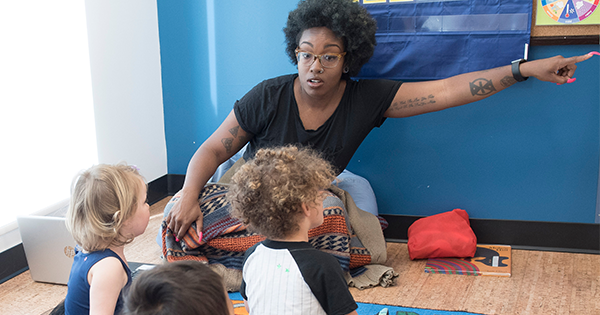
It’s August, which means it is National Immunization Awareness month. It’s never been more important to talk about immunizations than now. Already in August, there have already been 1,164 cases of measles across the United States this year. That’s more than any single year since 1994. About one-quarter of this year’s cases have affected children under age five. And nine times out of ten, the person who got sick was either unvaccinated or unsure if they were vaccinated.
Parents and child care providers rely on child care resource and referral agencies (CCR&Rs) for information about how to keep kids safe in child care. There’s a lot of confusion about the measles vaccine (MMR), so CCR&Rs need to share information that is accurate and easy to understand. Most importantly, it's important to understand that:
- The MMR vaccine is the best protection we have against measles.
- The MMR vaccine is safe and it protects the whole community.
- Everyone who can get the MMR vaccine should get it, including kids over age one, family members and child care providers.
Talking with Children Tip Sheet
CCR&Rs can also help child care providers and families talk to children about measles. Overhearing media reports or adult conversations can be scary and confusing for kids. Share this tip sheet about talking to children about infectious diseases from the Substance Abuse Mental Health Services Administration. You can use it to help caregivers offer support to children who are worried about the measles outbreak.
As the sheet mentions, it's important to listen to children's fears and allow them time to ask any questions that they may have. It is also important to not pressure children into talking about outbreaks if they are scared or don’t feel comfortable talking about it. Younger children may not understand outbreaks, so instead, they'll respond to the emotions of their caregivers, so it’s important for providers to model compassionate behavior.
If you need additional support in talking with children or child care providers, the tip sheet includes many websites, phone lines, and locations of organizations that can provide additional resources.





